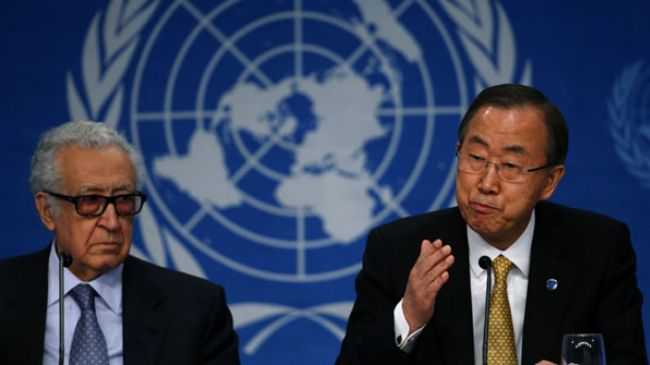Newspaper Article 07/01/2014
Finally, United Nations General Assembly has adopted a resolution calling on states that use UAVs (unmanned aerial vehicles, commonly known as drones) as a counter terrorism measure to comply with International law regarding human rights violations.
United Nations charter gives much importance to Human Rights. UN is the first intergovernmental body where human rights have been documented in the charter of the organization. Pre-1945, relations between state and its citizens were regarded as purely domestic affair of state falling under the jurisdiction of state but in post-1945 era individuals became a subject of International law. Universal Declaration of Human Rights directly addressed the people of the world. Article 55 and 56 of the UN charter stress the protection and promotion of human rights and oblige member states to respect human rights.
As a matter of fact, theory and practice always differ with each other as has been the case with the human rights. The Cold War power politics made it impossible for the UN to exert its authority with regard to human rights. In the post-Cold War period, following the former Yugoslavia’s disintegration process, humanitarian concerns once again drew the attention of international community and the concepts of “humanitarian intervention” and “responsibility to protect” were put forward to address the human rights concerns. These concepts entail that if a state fails to protect its citizens from “genocide, war crimes, ethnic cleansing and crimes against humanity” then it becomes a collective responsibility of international community to protect the citizens. Such concepts raised serious concerns regarding the state sovereignty.
The concept of state sovereignty, along with territorial integrity, political independence as enunciated by Peace of Westphalia in 1648 has been the basis of modern state system since seventeenth century. These principles were endorsed by the UN Charter. Article 2(4) of the UN Charter prohibits threat or use of force against territorial integrity of any state. Article 2(7) prevents intervention in internal affairs of a state by any other state. United Nations Security Council has been recognized as the only body to authorize the use of force against any state if there is threat to peace, breach of peace or act of aggression. The post-Cold War world saw a controversy between human rights issues and concepts of state sovereignty.
Post 9/11, counter-terrorism with its controversial tools such as drones has been much criticized by human rights activists. The states, target of drone strikes have been facing a ‘sovereignty dilemma’ in their relations with regional rival states and a sense of helplessness is prevailing at home that how to justify the drone war that is causing human and material loss. Pakistan presents the worst scenario as being target of the highest number of drone strikes since 2004.
Prime Minister Nawaz Sharif during his visit to the United States has raised the issue of drone strikes and described it as a major irritant in Pak-US relations. During his meeting with President Obama, Prime Minister called for an end to drone strikes. Prime Minister’s visit was coincided with the release of Amnesty International and Human Rights Watch’s report about civilian casualties in drone strikes in Pakistan and Yemen. Earlier, in October, United Nations rapporteur after a detailed study termed United States drone policy a threat to global peace and security and called upon the United States to show transparency in this regard.
This is not the first time that legality of drone strikes has been questioned, but a year ago, two prominent US Law Schools, Stanford Law School and New York University School of Law conducted a joint research in September 2012, and rejected US narrative about efficiency of drones in counter-terrorism strategy and termed the use of drones as counterproductive and resulting in civilian casualties.
Human rights organizations though less vocal in this regard, have time and again initiated the debate to deliberate upon the rules and procedures of International law and international humanitarian law regarding the drone warfare. The self-proclaimed efficacy of drones as a counter-terrorism tool having credentials for damage limitation and a precision strike has been constantly challenged now.
It is to see how far United Nations General Assembly would be able to make states comply with the rules of international law and what mechanism to regulate the UAVs will be adopted but we must appreciate the intensive efforts of Pakistani delegation that has been continuously trying to raise the issue at the highest world forum. Instead of hiding the facts, ensuring accountability and transparency should be the integral part of counter-terrorism operations.
The article was carried by Daily Times on December 26, 2013. The views expressed here belong to the author and do not reflect the policy of the IPRI.

